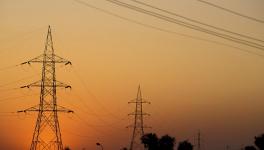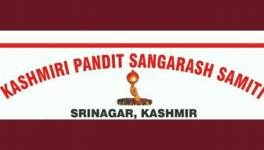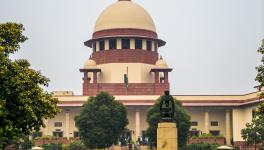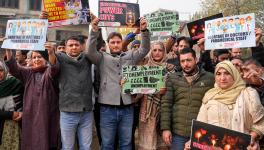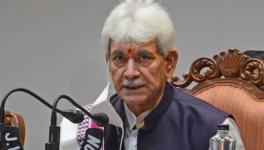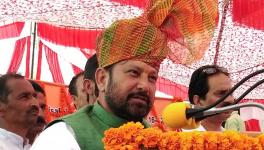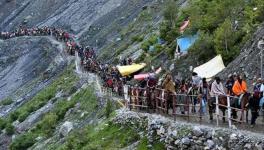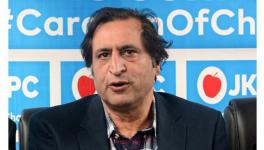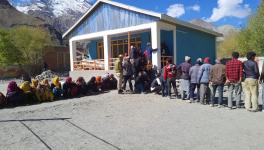Rising Apprehensions in Jammu Region on Delimitation Panel's Fresh Draft
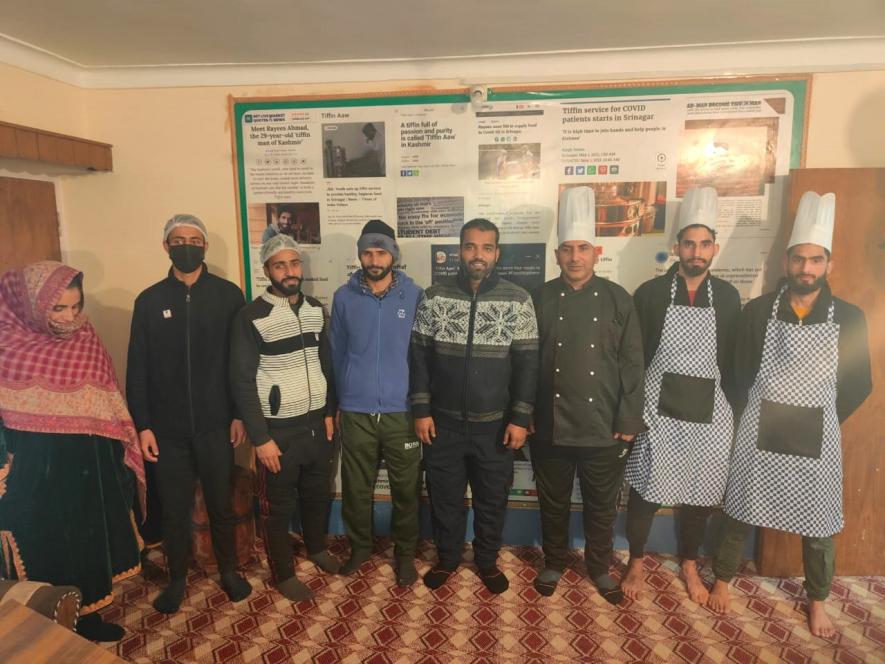
Srinagar: The fresh draft proposal by Delimitation Commission has not only evoked sharp reaction from Kashmir but is likely to create equally strong resentment in the Jammu region where changes suggested by the panel are also being seen as politically drastic.
The changes suggested by the commission, led by Justice (Retd.) Ranjana Prakash Desai, have already led to protests in Suchetgarh and RS Pura areas of Jammu. The two have been Assembly constituencies but are expected to be merged into one if the suggestions are accepted, which include de-reservation of RS Pura.
District Development Council (DDC) member from Suchetgarh, Taranjit Singh Tony, accused the Delimitation Commission of being “influenced” by the ruling Bharatiya Janata Party (BJP).
“The Delimitation Commission has worked under the microscopic supervision of RSS (Rashtriya Swayansevak Sangh) and BJP and it is to suit their requirements that the new constituencies have been carved out,” he told NewsClick.
Tony added that the suggestions were aimed to “crush” the political voice of minorities of the region, violating Article 15.
RS Pura is seen as a BJP bastion after the jat community supported the party in the last Assembly election. The community leaders are now seemingly upset with the new proposed changes, triggering hostility within the local BJP cadre. Many have submitted their resignation to the party general secretary.
But, Tony is not convinced and terms the resignation of over a hundred BJP workers as an “eye-wash”.
“They just want to show the jat commnunity that they are also resisting the draft but had they been fighting it seriously, their senior leaders should have resigned and not basic party workers who are being used as scapegoats to appease the community in the elections. If they are sincere all senior jat leaders should resign,” he added.
Representatives from both the regions have hardly been on the same page even before the abrogation of Article 370 and 35 A despite strong footing of parties like National Conference (NC) and People’s Democratic Party (PDP) in both the regions. The defection of NC’s Devender Singh Rana – seen as a significant shift of political balance – last October only widened the wedge between the two regions.
But, there have been some issues from time to time when the leadership of the two regions have been in accord, however awkward, sharing their apprehensions on moves, more recently regarding the delimitation proposal.
Ashok Koul, BJP state general secretary, Union Territory of Jammu & Kashmir and Ladakh, believes the draft is yet to be finalised, therefore, there is scope for further deliberations and suggestions. The commission has shared the second draft with its associate members, who are expected to file their responses by February 14.
Backing the Delimitation Commission’s suggestions, Koul said the mergers were bound to happen and if MPs, who are the associate members, have any reservations or objections they should come forward.
“They think it is being done by BJP which is not the case. BJP has no role to play in the Delimitation Commission. We will submit our recommendations through our MPs and see what happens, and when it comes in the public domain, the people will share their responses with the commission,” Koul told NewsClick.
There is strong resentment in parties like NC, PDP and Peoples’ Conference, against the proposed changes suggested by the Commission. All these parties have rejected the two drafts and termed these as “means employed to suit BJP” in the next elections. BJP leaders, meanwhile, are putting their weight behind the commission, refuting allegations of “influencing” it.
The proposed merger of Pir Panjal areas of Poonch and Rajouri with Anantnag parliamentary constituency has particularly come as a surprise to many political leaders who believe that the two regions vary from each other from topography to issues, political challenges and aspirations.
Veer Saraf, BJP in-charge South Kashmir, however, doesn’t see anything wrong in the decision. Jammu and Kashmir, he says, are two regions and everyone has been doing politics over their differences, but the fact is they are part of a single Union territory.
“If we divide it, we can never be the same. I take it as a welcome step, personally, and I am sure that my party will also welcome it,” he told NewsClick.
Refuting allegations that the Delimitation Commission has failed to deliver as an autonomous body and is being “influenced” by BJP or the government of India, Saraf said his own suggestions regarding reservation for Kashmiri Pandits in three seats did not materialise.
“Our representation is not accepted even when we deserve it, but this did not make me question the whole process of the Commission. The Delimitation Commission has used its wisdom. I don’t think it is right to cast aspersions on it even if we don’t agree with the suggestions,” he added.
Peoples Conference chairman Sajad Lone on Wednesday said the delimitation report was an exercise made for a particular party to act as “disrupters”.
“The government is misunderstanding. By doing such things, nothing is going to change in Jammu and Kashmir,” he said.
Apprehensions have also been expressed by Kashmir-based parties that the whole exercise is set to “disempower” Muslims of the region. But, there is a spillover in Jammu since the second draft proposal was submitted. In Jammu’s Nagrota area, with most political parties, including PDP and Congress, putting up a united front, called the Joint Action Committee (JAC), to reject the draft.
Local representatives in Nagrota, which has a majority of Scheduled Tribe (ST) population, expected ST reservation in the Assembly constituency. But, key areas are excluded from Nagrota constituency and included in Jammu East, which they believe, is “unjustified.”
Senior Jammu-based politician Bhim Singh of the J&K National Panthers Party also rejected the second draft proposal terming the Commission’s recommendations as “dangerous” for the “peace and security”.
In a statement, Singh alleged that the report was a means to carry forward the Owen Dixon Plan of 1951, which was rejected by all national and state political parties. “It was one of the reasons that Sheikh Abdullah, the then Prime Minister of J&K, was dismissed by the then Prime Minister of India, Pandit Jawaharlal Nehru in 1953,” he said.
The Dixon Plan, Singh referred to, is named after a UN Representative Sir Owen Dixon who assigned Ladakh to India, Pakistan-Controlled parts of Kashmir to Pakistan, split Jammu between the two and envisaged a “plebiscite” for Kashmir Valley as part of the UN mediation over the region.
Get the latest reports & analysis with people's perspective on Protests, movements & deep analytical videos, discussions of the current affairs in your Telegram app. Subscribe to NewsClick's Telegram channel & get Real-Time updates on stories, as they get published on our website.









